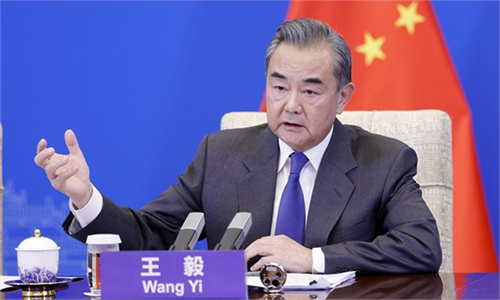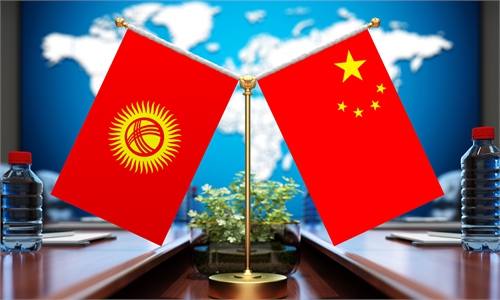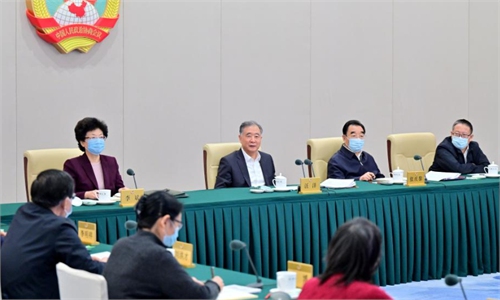Understanding CPC: Chinese senior engineer based in Bangladesh witnesses the development, achievements of BRI over the decade
Editor's Note:
Who is the Communist Party of China (CPC)? What is the CPC's role in the new era?
The CPC has grown into one of the largest parties in the world in the process of leading the Chinese people in seeking liberation and happiness, making China as strong and prosperous as it is today.
As the CPC ushers the nation into a new era of development, the last decade has witnessed great achievements in the nation's strength and prosperity, with people's confidence and recognition of this path rising to unprecedentedly high levels.
With more than 96 million members, the CPC concluded its 20th National Congress in October 2022, which realized the goals of unifying thinking, fortifying confidence, charting the course for a new era, and boosting morale. The Global Times is publishing a series of stories to help the world understand the CPC in this new era, through stories from CPC members working on the frontlines of various fields, as well as through observations made by respected Chinese and overseas scholars.
This final installment tells the story of a senior engineer from a Chinese construction company who had been stationed in South Asia for over a decade, and has witnessed the growth of Chinese companies that have been helping local regions to develop economically and to improve people's livelihoods under the China-proposed Belt and Road Initiative (BRI).
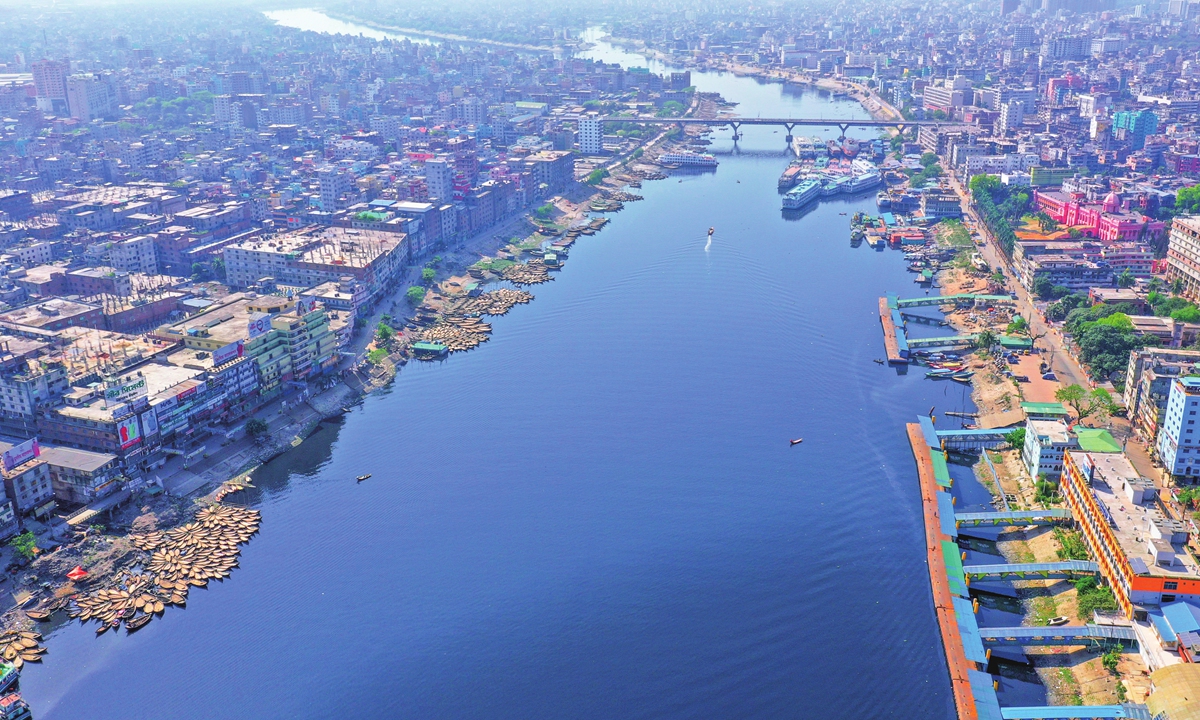
After returning to the motherland, Zhu Xiaofan finally had the chance to look back, in a critical way, on his experience working abroad.
He came back to China in December 2022. Before that, he had been stationed in Bangladesh for 12 years, working as a manager representing Sinohydro Engineering Bureau 8 Co Ltd.
In the years working abroad, he witnessed how the BRI has taken root in South Asia.
Zhu, now deputy Party chief of the International Company of the Sinohydro Engineering Bureau 8 Co Ltd, shared with the Global Times his observations and feelings from working abroad.
"We started from zero, and had faced dangers, difficulties, and misunderstandings," he said. "But we have always had a pragmatic attitude and have worked hard in response, and have always won the respect and trust of local people."
Thanks to the BRI, Zhu found that more and more Chinese companies are now working in Bangladesh, covering many fields and creating many work opportunities for local people. Moreover, the cooperation between the two countries has increased and deepened.
The year 2023 marks the 10th anniversary of the launch of the BRI. Over the decade, a large number of BRI projects have been launched across the world, helping local economic development, improving the living standards of local people, and promoting local employment. The improvement of infrastructural conditions has also brought about more opportunities for China's domestic and foreign economic cooperation.
Moreover, the BRI has also been conducive to strengthening mutual trust and understanding, reducing differences and disputes, promoting people-to-people exchanges, and helping build bonds between people in different countries.
Start up in a strange country
Before leaving China to work abroad, Zhu had a solid career and stable life working as a hydropower engineer.
After graduating from Sichuan University with a degree in water conservancy and hydropower engineering in 1994, Zhu joined the Sinohydro Engineering Bureau 8 Co Ltd under Power China. He started as a technician, then graduated into a team leader, and then an engineer-in-chief in a department.
Like every employee in the hydropower industry, Zhu was also stationed in multiple localities in China for different projects.
He participated in the construction of hydropower stations in several provincial regions, including Central China's Hunan and Hubei provinces, and Southwest China's Guizhou Province and Guangxi Zhuang Autonomous Region.
In early 2010, his company won the bid for a road construction project in Bangladesh. Zhu was dispatched from China to be in charge of the construction of three of the seven road segments.
His stayed there to work for the following 12 years, transitioning from one project to another.
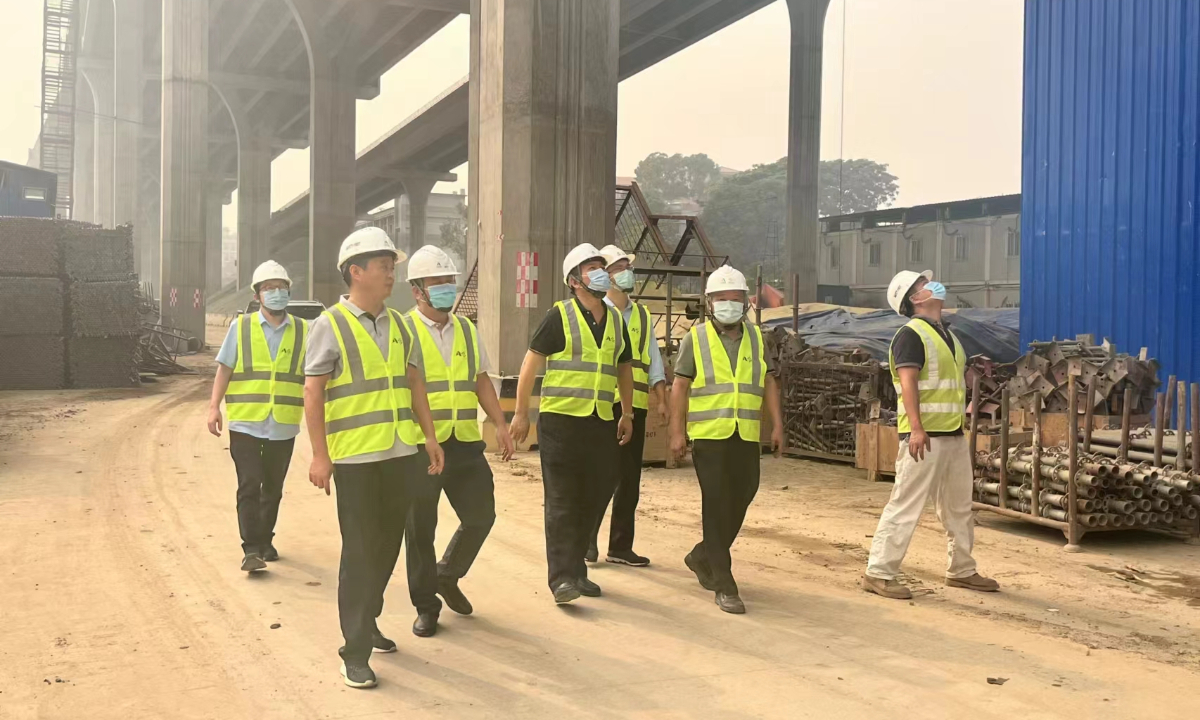
"We did not have much business in the country [Bangladesh] at the beginning. But after years of operation, we have now worked on many projects there," Zhu said.
He has participated in local projects such as Dhaka Airport's expansion, the construction of viaduct, and railway construction.
As with the promotion of BRI, the Sinohydro Engineering Bureau 8 Co Ltd, headquartered in Changsha, provincial capital of Hunan, now has more than 110 overseas projects in progress in more than 30 countries and regions. Many of its projects have won local awards.
"We are almost the first batch of Chinese companies in Bangladesh," Zhu said. But he noticed that more Chinese companies have taken root in the country over the years thanks to the BRI.
Zhu said he is most impressed by the Dasherkandi sewage treatment plant, also built by Power China. "It has not only largely improved people's daily lives, but also benefited the local environment."
Local media reported in April 2022 that the project would create 1,000 jobs and has the capacity to process sewage for nearly 5 million people in Dhaka on a daily basis.
Proud work
The first project Zhu worked on in Bangladesh was the Dhaka-Chittagong Highway. It is the main transportation artery in Bangladesh, linking the country's two largest cities - Dhaka and Chittagong.
"It was once the country's most significant construction project," Zhu recalled. "It is like the lifeline from Beijing to Shanghai. If the country's No.1 road has any problem, the whole country will be in trouble."
However, the project that drew the whole country's attention did not start smoothly.
The project was reportedly delayed because of a shortage of soil, land acquisition problems, political instability, and other complications, which also put Zhu and his colleagues under enormous pressure.
Luckily, with great efforts, the project, however, was completed on June 23, 2016, and Bangladeshi Prime Minister Sheikh Hasina inaugurated it on July 2, the Xinhua News Agency reported.
Direct beneficiaries of the highway expressed their deep satisfaction and gratitude as the Chinese company had completed the challenging expansion tasks. They said the highway would surely help boost the country's commerce and investment and contribute to the economy immensely.
Aside from the solid construction, Zhu is also very proud of the company helping foster local talent over the years.
"We have more than 100 long-term local employees, with 20 or so who have been with us from as early as 2010 and 2011. They have grown into the backbone of our company in Bangladesh," Zhu said.
These people work as operators, repairman, drivers, and even cooks. "Our Bengalese cooks can now make authentic Hunan food after years of working with us," Zhu said with a hearty laughter.
Zhu said that right now the company hires as many local people as possible. Sometimes, when they are busy with several different projects, they could provide around 10,000 job opportunities. "On average, we hire about 4,000 local employees annually," Zhu said.
In the last few years, while working on his projects, Zhu has also been exposed to the pressures of foreign media coverage. For instance, a deep-water port project was hyped and smeared by the US and Indian media as having "military use," causing protest voices. "Even a river dredging project by Chinese companies would be attacked too," he noted.
"These groundless attacks are obviously double standards by some Western countries and India, who do not want to see the rise of China," Zhu said.
Luckily, local people were not influenced by these smears. The projects were completed smoothly, helping local social development.
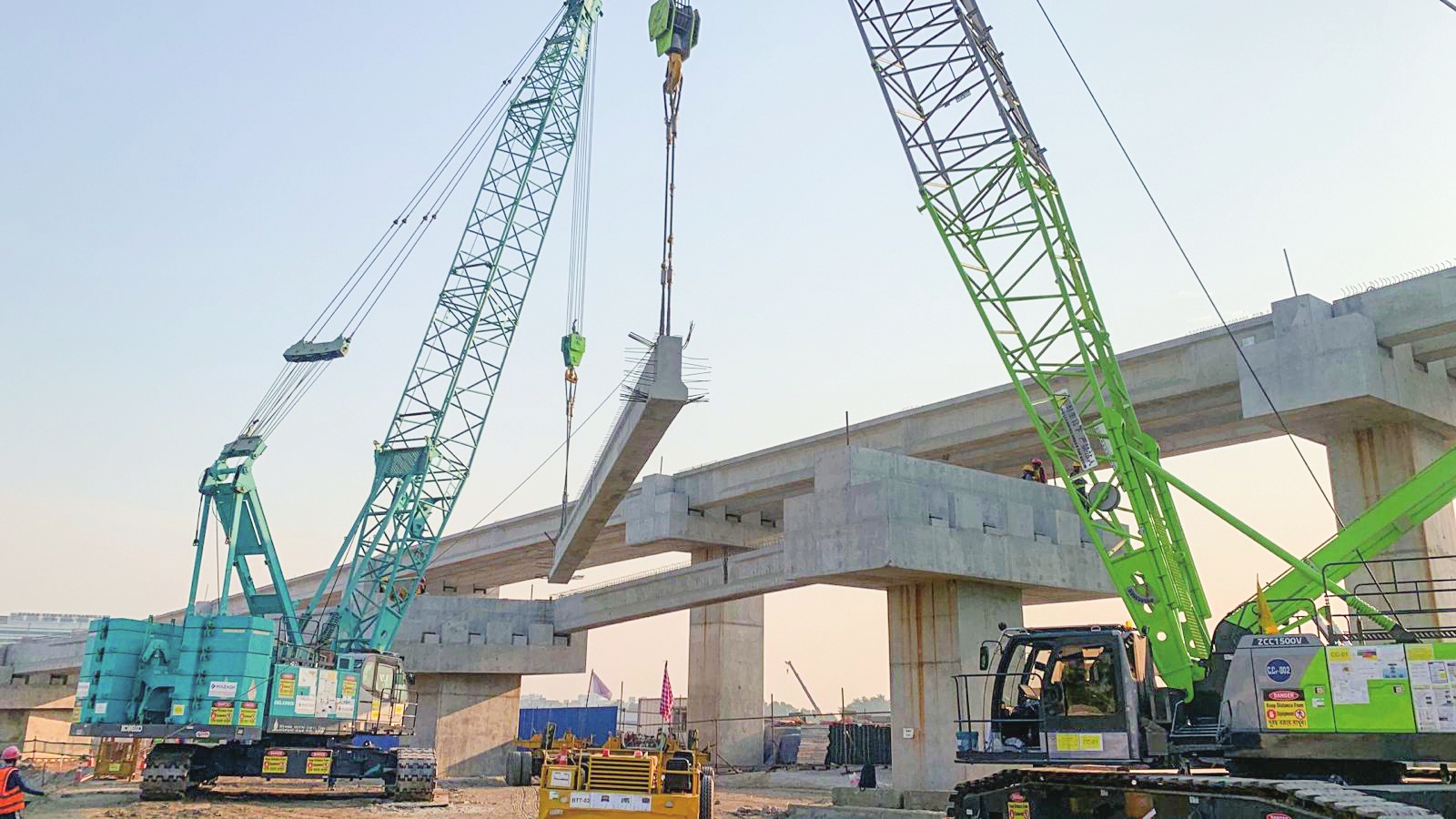
Take the responsibility
Zhu is also a proud CPC member. He said that the identity has given him bravery in his work.
He likes to watch war movies and TV dramas, and the spirits of Party members at war times inspires him with great courage.
While working overseas, Zhu witnessed the convening of the 20th National Congress of the CPC and the celebration of the centennial of the founding of the CPC.
He and other Party members in the company also learned about the contents passed and spirit perpetuated through the events.
"Seeing our motherland becoming stronger through overcoming difficulties and helping people in other developing countries, I feel proud and confident," he said.
"The BRI is a win-win for China and other countries," Zhu noted.
"No matter whether it is technologies, equipment, or even tea leaves, the BRI provides a platform for us to exchange resources and seek for development jointly," he told the Global Times.
Who is the Communist Party of China (CPC)? What is the CPC's role in the new era?
The CPC has grown into one of the largest parties in the world in the process of leading the Chinese people in seeking liberation and happiness, making China as strong and prosperous as it is today.
As the CPC ushers the nation into a new era of development, the last decade has witnessed great achievements in the nation's strength and prosperity, with people's confidence and recognition of this path rising to unprecedentedly high levels.
With more than 96 million members, the CPC concluded its 20th National Congress in October 2022, which realized the goals of unifying thinking, fortifying confidence, charting the course for a new era, and boosting morale. The Global Times is publishing a series of stories to help the world understand the CPC in this new era, through stories from CPC members working on the frontlines of various fields, as well as through observations made by respected Chinese and overseas scholars.
This final installment tells the story of a senior engineer from a Chinese construction company who had been stationed in South Asia for over a decade, and has witnessed the growth of Chinese companies that have been helping local regions to develop economically and to improve people's livelihoods under the China-proposed Belt and Road Initiative (BRI).

The city view of Dhaka, Bangladesh Photo: VCG
After returning to the motherland, Zhu Xiaofan finally had the chance to look back, in a critical way, on his experience working abroad.
He came back to China in December 2022. Before that, he had been stationed in Bangladesh for 12 years, working as a manager representing Sinohydro Engineering Bureau 8 Co Ltd.
In the years working abroad, he witnessed how the BRI has taken root in South Asia.
Zhu, now deputy Party chief of the International Company of the Sinohydro Engineering Bureau 8 Co Ltd, shared with the Global Times his observations and feelings from working abroad.
"We started from zero, and had faced dangers, difficulties, and misunderstandings," he said. "But we have always had a pragmatic attitude and have worked hard in response, and have always won the respect and trust of local people."
Thanks to the BRI, Zhu found that more and more Chinese companies are now working in Bangladesh, covering many fields and creating many work opportunities for local people. Moreover, the cooperation between the two countries has increased and deepened.
The year 2023 marks the 10th anniversary of the launch of the BRI. Over the decade, a large number of BRI projects have been launched across the world, helping local economic development, improving the living standards of local people, and promoting local employment. The improvement of infrastructural conditions has also brought about more opportunities for China's domestic and foreign economic cooperation.
Moreover, the BRI has also been conducive to strengthening mutual trust and understanding, reducing differences and disputes, promoting people-to-people exchanges, and helping build bonds between people in different countries.
Start up in a strange country
Before leaving China to work abroad, Zhu had a solid career and stable life working as a hydropower engineer.
After graduating from Sichuan University with a degree in water conservancy and hydropower engineering in 1994, Zhu joined the Sinohydro Engineering Bureau 8 Co Ltd under Power China. He started as a technician, then graduated into a team leader, and then an engineer-in-chief in a department.
Like every employee in the hydropower industry, Zhu was also stationed in multiple localities in China for different projects.
He participated in the construction of hydropower stations in several provincial regions, including Central China's Hunan and Hubei provinces, and Southwest China's Guizhou Province and Guangxi Zhuang Autonomous Region.
In early 2010, his company won the bid for a road construction project in Bangladesh. Zhu was dispatched from China to be in charge of the construction of three of the seven road segments.
His stayed there to work for the following 12 years, transitioning from one project to another.

Zhu Xiaofan (second right) and his colleagues at a construction site in Bangladesh Photo: Courtesy of Zhu
"We did not have much business in the country [Bangladesh] at the beginning. But after years of operation, we have now worked on many projects there," Zhu said.
He has participated in local projects such as Dhaka Airport's expansion, the construction of viaduct, and railway construction.
As with the promotion of BRI, the Sinohydro Engineering Bureau 8 Co Ltd, headquartered in Changsha, provincial capital of Hunan, now has more than 110 overseas projects in progress in more than 30 countries and regions. Many of its projects have won local awards.
"We are almost the first batch of Chinese companies in Bangladesh," Zhu said. But he noticed that more Chinese companies have taken root in the country over the years thanks to the BRI.
Zhu said he is most impressed by the Dasherkandi sewage treatment plant, also built by Power China. "It has not only largely improved people's daily lives, but also benefited the local environment."
Local media reported in April 2022 that the project would create 1,000 jobs and has the capacity to process sewage for nearly 5 million people in Dhaka on a daily basis.
Proud work
The first project Zhu worked on in Bangladesh was the Dhaka-Chittagong Highway. It is the main transportation artery in Bangladesh, linking the country's two largest cities - Dhaka and Chittagong.
"It was once the country's most significant construction project," Zhu recalled. "It is like the lifeline from Beijing to Shanghai. If the country's No.1 road has any problem, the whole country will be in trouble."
However, the project that drew the whole country's attention did not start smoothly.
The project was reportedly delayed because of a shortage of soil, land acquisition problems, political instability, and other complications, which also put Zhu and his colleagues under enormous pressure.
Luckily, with great efforts, the project, however, was completed on June 23, 2016, and Bangladeshi Prime Minister Sheikh Hasina inaugurated it on July 2, the Xinhua News Agency reported.
Direct beneficiaries of the highway expressed their deep satisfaction and gratitude as the Chinese company had completed the challenging expansion tasks. They said the highway would surely help boost the country's commerce and investment and contribute to the economy immensely.
Aside from the solid construction, Zhu is also very proud of the company helping foster local talent over the years.
"We have more than 100 long-term local employees, with 20 or so who have been with us from as early as 2010 and 2011. They have grown into the backbone of our company in Bangladesh," Zhu said.
These people work as operators, repairman, drivers, and even cooks. "Our Bengalese cooks can now make authentic Hunan food after years of working with us," Zhu said with a hearty laughter.
Zhu said that right now the company hires as many local people as possible. Sometimes, when they are busy with several different projects, they could provide around 10,000 job opportunities. "On average, we hire about 4,000 local employees annually," Zhu said.
In the last few years, while working on his projects, Zhu has also been exposed to the pressures of foreign media coverage. For instance, a deep-water port project was hyped and smeared by the US and Indian media as having "military use," causing protest voices. "Even a river dredging project by Chinese companies would be attacked too," he noted.
"These groundless attacks are obviously double standards by some Western countries and India, who do not want to see the rise of China," Zhu said.
Luckily, local people were not influenced by these smears. The projects were completed smoothly, helping local social development.

The construction site of Dhaka Airport expansion project Photo: Courtesy of Zhu
Take the responsibility
Zhu is also a proud CPC member. He said that the identity has given him bravery in his work.
He likes to watch war movies and TV dramas, and the spirits of Party members at war times inspires him with great courage.
While working overseas, Zhu witnessed the convening of the 20th National Congress of the CPC and the celebration of the centennial of the founding of the CPC.
He and other Party members in the company also learned about the contents passed and spirit perpetuated through the events.
"Seeing our motherland becoming stronger through overcoming difficulties and helping people in other developing countries, I feel proud and confident," he said.
"The BRI is a win-win for China and other countries," Zhu noted.
"No matter whether it is technologies, equipment, or even tea leaves, the BRI provides a platform for us to exchange resources and seek for development jointly," he told the Global Times.

